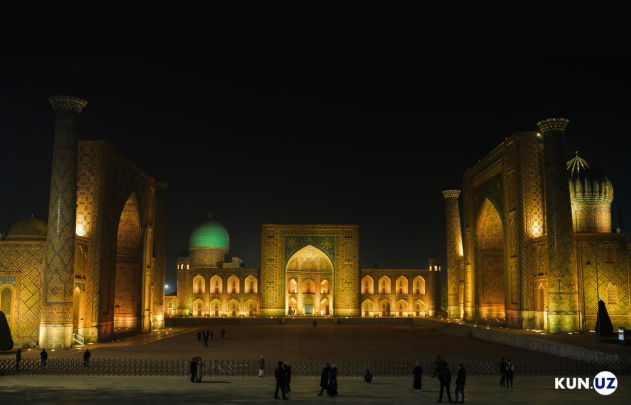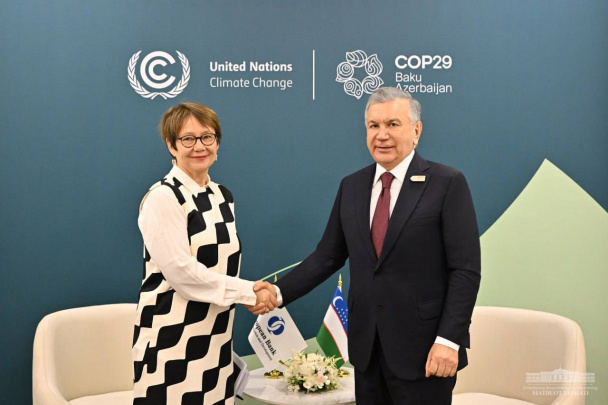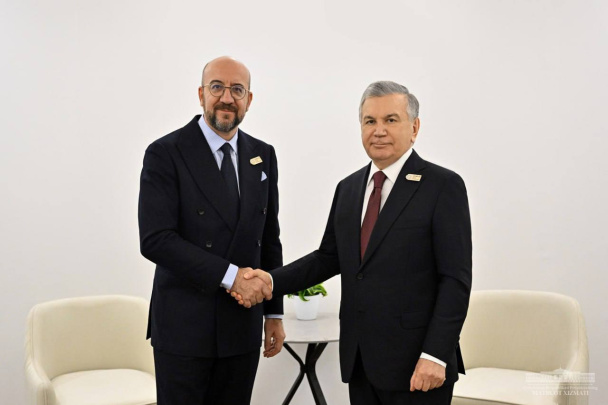U.S. needs to continue to take Central Asia seriously – Dr. Michael Rossi
In an exclusive interview with Kun.uz, Dr. Michael Rossi, an expert in International Relations and visiting professor of Political Science, offered a detailed analysis of the United States' strategic position in Central Asia. He discussed U.S. foreign policy, its global influence, and the implications of a potential second term for Donald Trump on relations with Uzbekistan and the region as a whole.
U.S. engagement in Central Asia
Dr. Rossi emphasized the increasing strategic importance of Central Asia within U.S. foreign policy, with Uzbekistan playing a pivotal role. As the region becomes more open to international partnerships, its significance has grown amid competing influences from Russia and China. He highlighted the opportunities and challenges for U.S. engagement in Uzbekistan, including investments, cultural initiatives, and soft power diplomacy.
Uzbekistan's multi-vector foreign policy — seeking balanced relations with global powers — was central to Dr. Rossi’s analysis. He noted that this approach allows Uzbekistan to welcome American investments and educational exchange programs while maintaining strong ties with Russia, China, and regional neighbors. He underscored the need for the U.S. to continue leveraging these openings to deepen its influence in the region.
The Trump administration’s return
Dr. Rossi provided a critical perspective on what Donald Trump’s return to office in 2025 could mean for the U.S. domestically and abroad. He noted that Trump’s policies, characterized by prioritizing national interests and recalibrating international alliances, could lead to significant shifts in U.S. foreign relations.
In the context of Central Asia, Dr. Rossi projected that a renewed Trump administration might intensify efforts to counter Chinese and Russian influence in the region. He also addressed Trump’s likely domestic and foreign policy goals, including restrictive immigration measures, economic protectionism, and revisiting key international agreements. These priorities, he argued, could impact America’s global standing and reshape alliances, influencing U.S. strategies in regions like Central Asia.
Historical context and future projections
Reflecting on recent developments, Dr. Rossi highlighted milestones in U.S.-Uzbekistan relations, such as the 2018 meeting between then-President Trump and the President of Uzbekistan Shavkat Mirziyoyev, as well as President Biden’s engagement with President Mirziyoyev at the inaugural C5+1 presidential summit in New York. These interactions signal a strengthening relationship that may be further influenced by future U.S. administrations.
Related News

18:39 / 14.11.2024
U.S. commits $500,000 for preservation of Samarkand’s historic Registan Square

17:02 / 13.11.2024
President Mirziyoyev discusses strategic projects with EBRD and IDB leaders

11:42 / 13.11.2024
Uzbekistan ranks lowest in Central Asia in Global AI Readiness Index

08:18 / 13.11.2024



